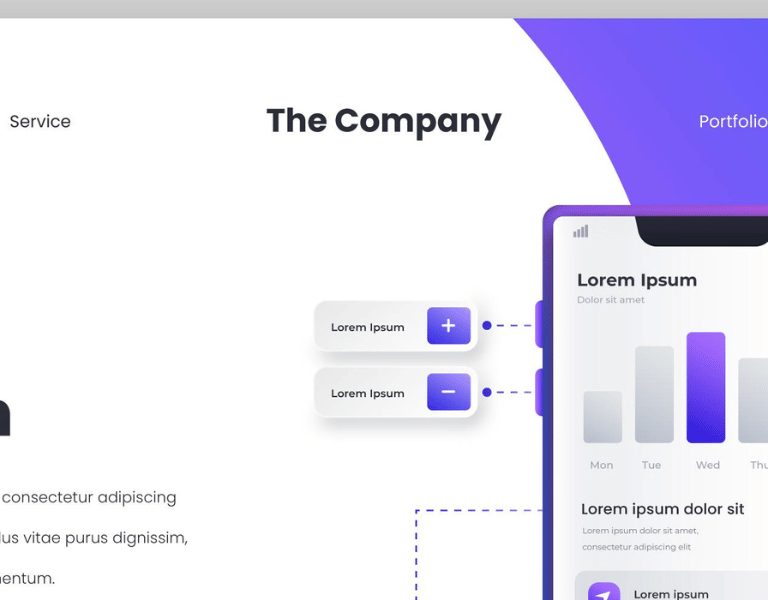E-commerce Marketing is a mix of three elements of day-to-day life that create a powerful tool. E-commerce is merely the sale and or purchase of goods and services over the Internet done through online stores presented using websites and mobile apps.
E-commerce marketing is essentially all the strategic methods used to create and or increase awareness about one’s online store, goods, and services. It encompasses all the advertising tactics used to promote a brand, goods, and services.
Before we dive into more detail about what e-commerce marketing is and how to implement a strategy of your own, let’s review the definition of e-commerce advertising and advertising’s parity with marketing for an e-commerce business.
Ecommerce Advertising
In a similar fashion to the way advertising falls beneath the umbrella of marketing, e-commerce advertising falls beneath e-commerce marketing — and when used in tandem, you have the ability to more effectively reach your audience members to boost conversions and improve brand awareness.
As mentioned in our definition above, e-commerce marketing is about driving awareness and action towards your product or service.
Meanwhile, e-commerce advertising includes the methods through which you actually promote your product. In terms of online or e-commerce marketing and selling, these ads may come in the form of display ads, banner ads, or rich media ads.

The main takeaway here is that e-commerce advertising is a highly effective method to implement while developing your e-commerce marketing strategy to focus your product or service promotion.
Now, let’s get back to our in-depth discussion about e-commerce marketing.
Types of Ecommerce Marketing
To give you an overview of what an e-commerce marketing strategy looks like, here are some common marketing channels and how you would use them to build an online store.
Social Media Marketing
Brands, publishers, contractors, and growing businesses all launch pages on today’s most popular social networks to connect with their audience and post content that the audience is interested in.
As an e-commerce marketer, you can do the same thing, but the campaigns you run might look a bit different, and not every social network is a good fit for your needs.
Ecommerce websites are highly visual — you have to show off the product, after all — so your success on social media depends on your use of imagery to drive attention and traffic to your product pages.
Instagram is an appropriate platform for e-commerce businesses because it enables you to post sharp product photography and expand your product’s reach beyond its purchase page.
You can take your social media posts a step further by creating shoppable content, which is content that enables visitors to buy right away. That can include anything from strategically placed display ads within a social feed to additional tags that take users directly to a shopping cart. These methods help you eliminate friction from the buying process.
An e-commerce business is no stranger to product reviews, either. Using a Facebook Business Page to share product praise is a perfect fit for businesses that already solicit customer reviews across their online store. We’ll dive deeper into product reviews below.
Content Marketing
When you hear “content marketing” you might think of blogging and video marketing — content that is meant to improve your website’s ranking in search engines and answer questions related to your industry. But if you’re selling a product online, do you really need articles and videos to generate transactions? You sure do.

Here are some ways to use content to market your e-commerce store.
Optimize your product page copy.
Optimize your product pages for short, product-driven keywords that include the name of the product. If you sell wedding dresses, for example, a Google search for “brown bridesmaid dress” is more likely to produce product pages like yours if you’ve included that term on the page.
Also, make sure that your page titles, headers, and image alt text focus on the right keywords so search engines know to return your e-commerce store for the right query.
Write relevant blog posts.
If you manage an online wedding dress store, writing blog posts about “how to plan a wedding” can attract everyone involved in wedding preparations no matter where they are in the planning process.
As visitors become more engaged, you can create posts that will move them into consideration, like “how to select the right wedding dress”, and turn them into leads, like a downloadable “wedding planning checklist”.
Create guest posts for external websites.
Guest posts can get you and your products in front of relevant audiences (oftentimes for free). Submitting guests posts will also help you get more domain authority for your e-commerce site, thereby telling search engines that you have a reliable site.
You’ll need to search for sites that rank for keywords related to your product. Sometimes you won’t even need to create an entire post. If a site already has a relatable post, offer to expand on it by providing additional context, like a video or infographic with a link to your site.
Put product-related videos on YouTube.
YouTube has over a billion active users … chances are your target audience is somewhere in there. It’s also the second-largest search engine behind Google. If you’re looking for a massive, captive audience, YouTube is where you’ll find it. Use highly searched keyword terms to determine your topics, then share videos that are related to your product and helpful to your audience.
This is also a great option for tutorial videos that show current customers how to use your product — these videos can show people how best to use your product, increasing customer satisfaction and building long-term relationships with website visitors.
Include a keyword-driven FAQ section on your website.
If your audience is asking questions related to your product, then you need to be the one to answer them. Create an FAQ page on your website with responses to high volume, long-tail keyword searches to get users to your site. You’ll be building both authority and traffic — two crucial components of a successful e-commerce store.
Search Engine Marketing
Search engine marketing (SEM) includes both search engine optimization (SEO) and paid advertising. While SEO relies on your knowledge of Google’s ranking algorithm to optimize content, SEM can involve pay-per-click (PPC) campaigns, display campaigns, or product-specific ad campaigns (think Google Shopping), which allow you to pay for top spots on search engine results pages.

On Google, PPC campaigns guarantee that potential buyers will see a link to your page when they enter search terms that match the terms of your campaign. But because you’re paying Google each time a person clicks on your result, the payoff to you should be high.
This is why e-commerce marketers often register with Google AdWords and promote their product pages through PPC campaigns. The campaign puts searchers right in front of the business’s product when they click on a paid result, increasing the likelihood that the searcher will make a purchase before leaving the business’s website.
Email Marketing
Email marketing is one of the oldest forms of digital marketing, and believe it or not, it holds specific value in the world of e-commerce marketing.
The best part about email marketing? It can be automated. Automation means that you can set up a successful drip campaign for subscribers that are segmented by interest or stage in the buyer’s journey and let your email campaign do its magic. It’s one less marketing tactic that you need to worry about on your long list of tasks.
Even so, it’s imperative that you’re meticulous about your email list so you maintain trust among your leads. In a time when data privacy runs high on an internet user’s priority list, not every commercial email is welcome in that user’s inbox. Ecommerce marketers need to be careful when and how they add website visitors to their mailing list.








